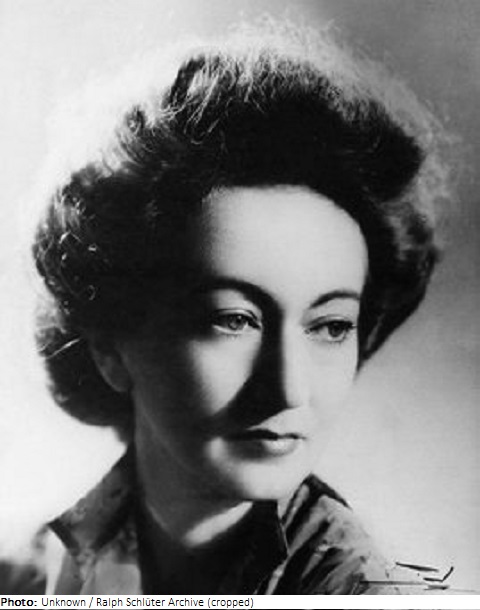
| Roles | Competed in Olympic Games |
|---|---|
| Sex | Female |
| Full name | Alba Carla Lauritai•De Céspedes y Bertini |
| Used name | Alba•De Céspedes |
| Other names | Clorinda |
| Born | 11 March 1911 in Roma, Roma (ITA) |
| Died | 14 November 1997 (aged 86 years 8 months 3 days) in Paris IVe, Paris (FRA) |
| NOC |  Italy Italy |
Alba De Céspedes was the daughter of the 6th President of Cuba, Carlos Manuel de Céspedes y Quesada, and his Italian wife. Alba was also the granddaughter of Carlos Manuel De Céspedes, who declared Cuban independence in 1868. Alba de Céspedes wrote psychological social and women’s novels. In addition to novels and poems, she also produced radio and television scripts, and worked for movies and the theater. She grew up bilingual in Spanish and Italian, but later also wrote in French. Raised in a wealthy and politically engaged anti-fascist family, she later supported the Cuban revolutionary leader Fidel Castro. At only 15-years-of-age, she married the Italian nobleman Giuseppe Antamoro, so she could obtain Italian citizenship. Aged 24, she began to publish short stories and poems, and four years later her first novel was published. In 1935 and 1943, she was detained in Italy for her anti-Fascist activities for partisan organizations. Her radio pseudonym, “Clorinda”, was also her nom de guerre as a partisan. After the liberation, she published the literary magazine “Mercurio” from 1944-48. Later she wrote for “Epoca” and “La Stampa”, before she focused on writing novels. Some of her stories were made into movies including the Michelangelo Antonioni-directed Le amiche. From the late 1960s, she lived in Paris.
Her entry for the 1936 Olympic art competitions was the novel lo, suo padre: : romanzo sportivo, which was published in 1935 by a small publishing house in Lanciano. A movie based on the book was released in 1939 and directed by Mario Bonnard. It is the story of a boxer who gives up his sport and follows a woman to luxurious winter resorts. When she refuses to marry him in order to maintain her pleasant life style, he returns home to his father and coach and resumes his sports career . Interestingly, the work was praised by the Fascists but also considered as showing “her resistance by critiquing Fascist myths and ideals“ [Carol C. Gallucci, 2000].
| Games | Discipline (Sport) / Event | NOC / Team | Pos | Medal | As | |
|---|---|---|---|---|---|---|
| 1936 Summer Olympics | Art Competitions |  ITA ITA |
Alba De Céspedes | |||
| Literature, Epic Works, Open (Olympic) |